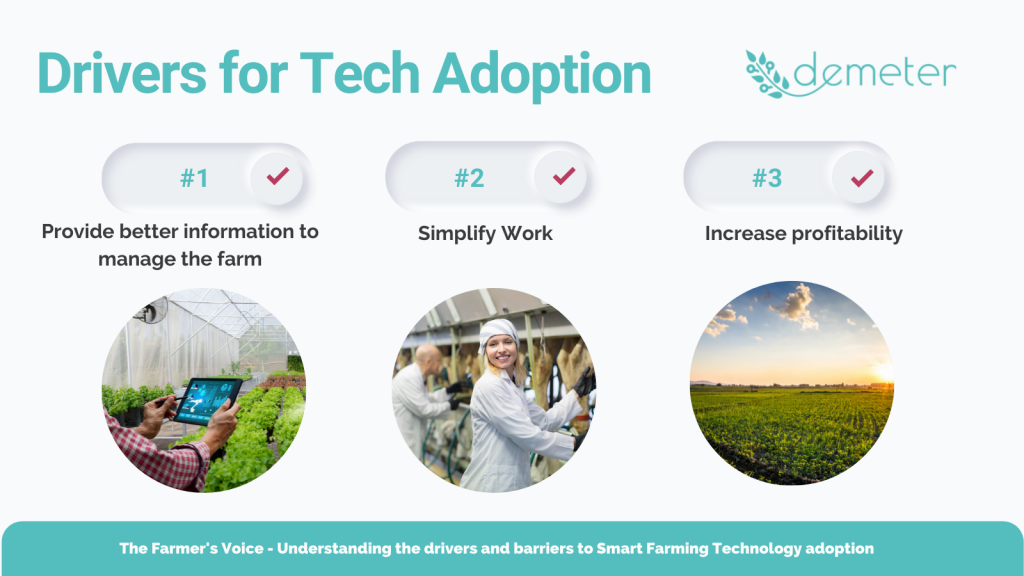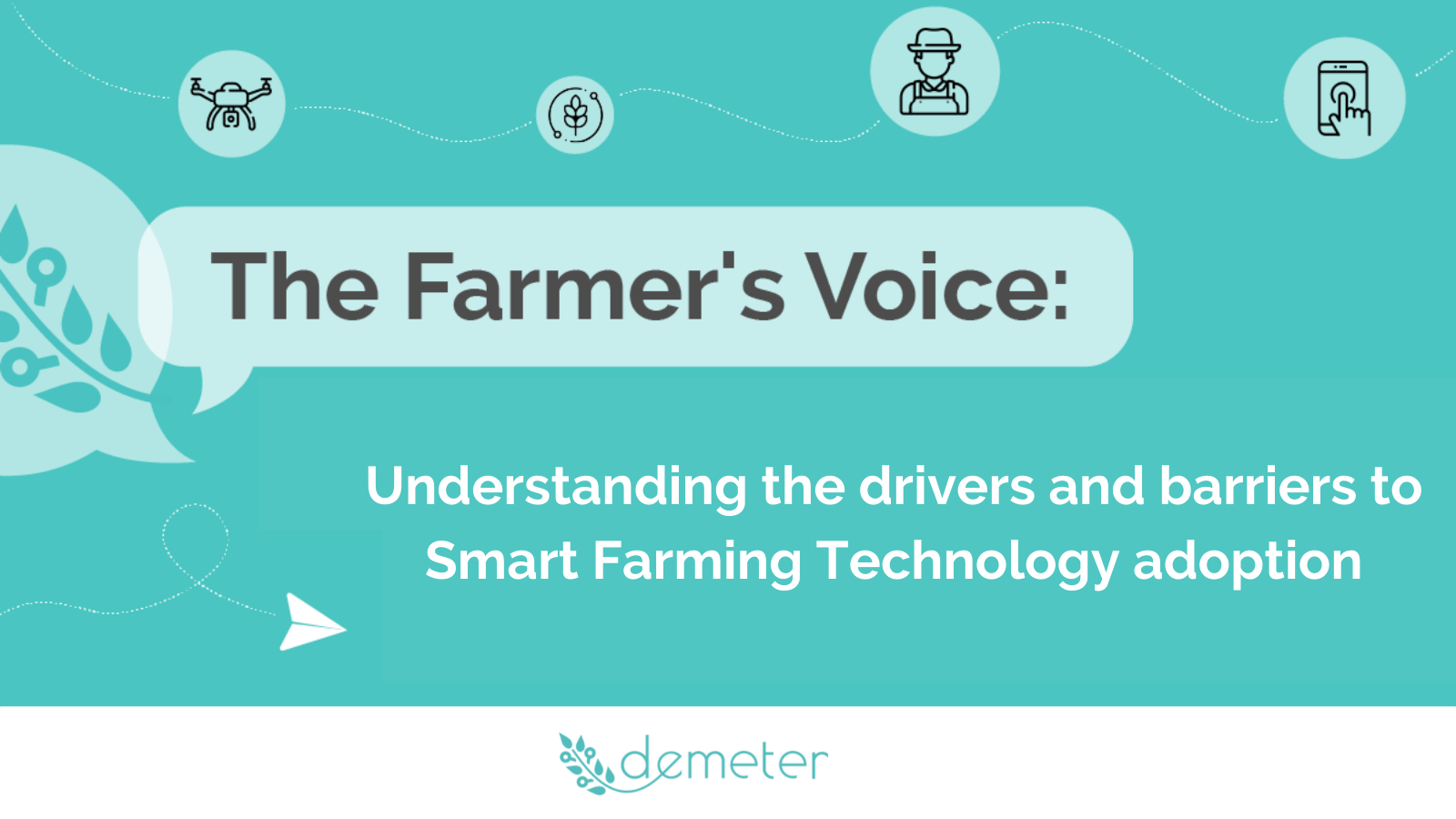by Gráinne Dilleen, Communications Coordinator and a PhD Researcher at Waterford Institute of Technology and Dave Hearne, Senior UX Designer/Developer at Walton Institute
DEMETER is is a Horizon 2020 project which aims to facilitate and speed-up the deployment of interoperable, data-driven, smart farming solutions providing decision support and control systems for the agricultural sector that empower farmers to take better decisions.
In DEMETER, a multi-actor approach (MAA) is followed to ensure that newly developed technical solutions meet real life needs.
Farmers are a key stakeholder group within the DEMETER ecosystem and understanding their needs, interests and concerns regarding digital technologies is central to a positive outcome for the project. With this in mind, we created an online survey to better understand the main barriers and drivers to Smart Farming Technology (SFT) adoption.

The survey was created in consultation with several Farmers’ Associations who are members of the DEMETER consortium: World Farmers’ Organisation, Irish Farmers’ Association (IFA), Georgian Farmers’ Association (GFA), Coldiretti and the Romanian Maize Grower’s Association (APPR).
The research was conducted across November and December 2021 and top-line results were shared at The Farmer’s Voice webinar.
In total, 484 responses were received from farmers across 46 different countries; 82% of respondents were male, while 17% were female (1% Other). The age was split 18-24 (4%), 25-34 (20%), 35-44 (24%), 55-64 (24%) and 65+ (5%). 27% of farmers had a farm size greater than 200 ha, 17% indicated a farm size of 20ha-49ha, 16% had a farm size of 50-99ha. This was followed by smaller farm sizes with 14% having less than 5ha, while 13% had 5-19ha. Finally, 11% had 100-199 ha.
48% of farmers were already using SFT on farm, with a further 37% indicating they will use SFT in the future, but 15% doubt they will ever. As expected, farmers already using SFT have a much more positive attitude regarding the cost-benefit analysis of adoption than non-users.
The biggest drivers for farmers to adopt new technologies were highlighted as:
- To provide better information to manage the farm.
- To simplify work.
- To increase profitability.
The main barriers to adoption were:
- Cost – 53% of respondents indicated that most SFTs are too costly for them.
- Data privacy – 23% of respondents were concerned that third parties would gain ownership of their private data. This rose to 50% among farmers in Ireland.
- Lacking resources – 22% indicated that they lacked the resources needed to allow them to adopt a SFT.
Sustainability arose as a key issue for farmers. A majority indicated that they currently did not see clear environmental benefits associated with using SFT. However, they believe that technology can improve their environmental impact and help them to cope with climate change.
DEMETER is preparing a report to share the full findings from the survey as well as practical recommendations for technology providers. This will be made available on the website and DEMETER social media channels.
Website | Twitter | Facebook | LinkedIn |Email
ABOUT THE AUTHORS
 Gráinne Dilleen is the DEMETER Communications Coordinator and a PhD Researcher at Waterford Institute of Technology.
Gráinne Dilleen is the DEMETER Communications Coordinator and a PhD Researcher at Waterford Institute of Technology.
Her research is focused on understanding the factors which influence farmers’ intention to adopt smart technologies.
 Dave Hearne is a Senior UX Designer/Developer at Walton Institute.
Dave Hearne is a Senior UX Designer/Developer at Walton Institute.
Within DEMETER he is responsible for driving the multi-actor approach, ensuring innovation is demand driven.
